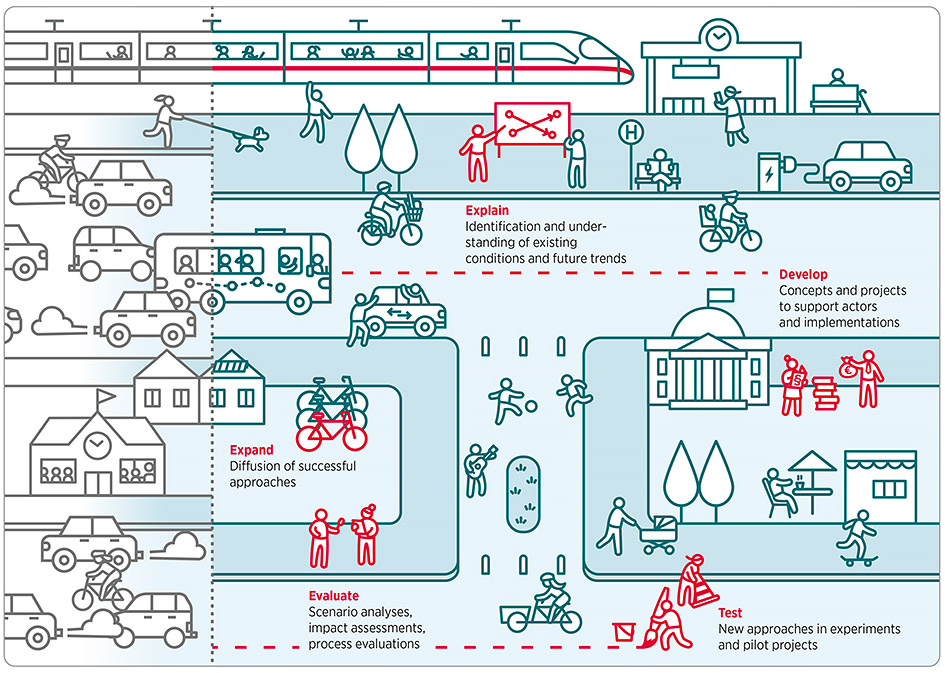Mobility and Transport Policy
The Research Unit Mobility and Transport Policy investigates which policies and actors will be able to shape the transformation of the transport sector towards sustainable mobility in Germany.
For this purpose, it analyses the framework conditions, structures and trends in mobility and transport and develops, tests and evaluates concepts, strategies and measures as well as procedures and instruments for shaping sustainable mobility in Germany.
The aim is to support the actors in politics and administration, in business and civil society, in cities, regions, federal states and the federal government in their actions to ensure the success of a transition towards sustainable transport.
A focus of research is the transition towards carbon neutral and environmentally friendly mobility of people in their interaction with economy and society, which enables the social participation of all and is gender-equitable.
Objectives
Transport and mobility in Germany are facing a number of challenges: Their greenhouse gas emissions contribute to climate change; air pollutants, noise and traffic accidents endanger people’s health; roads and car parks use up scarce public space and public funds. A mobility transition aims to reduce these impacts and facilitate sustainable mobility for everyone.
The Research Unit Mobility and Transport Policy sets out ways to successfully achieve sustainable transport policy. By doing so, it assists cities, ministries at state and regional level, economic stakeholders and civil society, and adds an inter- and transdisciplinary perspective to the scientific debate.
Thematic focus
The research focus is on strategies, measures, and instruments for sustainable transport policies in Germany. To do so, the researchers consider both the transport system and aspects of sustainable mobility, including the promotion of pedestrian and bicycle traffic, sharing mobility and digitalisation, electromobility and other alternative drives and fuels as well as mobility management. Gender aspects are being analysed as a cross-sectoral issue. Along with these questions, the Research Unit applies different methods: Analysis and development of policy concepts and scenarios, the pilot implementation of sustainable mobility within a framework of living labs and the monitoring and evaluation of impacts and processes.
The Research Unit Mobility and Transport Policy follows a specific transformation-approach created by the Wuppertal Institute, which involves five steps. The steps complement and support each other:
- Explain:
The researchers performs analyses to empirically evaluate, theoretically understand and explain the existing conditions and future trends. - Develop:
They develop concepts and projects, which conceptually demonstrate which actors can use which strategies and measures to effectively shape sustainable mobility in Germany. - Test:
Within living labs, experiments, pilot projects and model projects, the scientists test new approaches for sustainable mobility. - Evaluate:
By using scenario analyses, estimates of potential, impact and process evaluations, they show whether and to what extent the strategies and actions taken can lead to sustainable mobility. - Expand:
Based on conceptual studies, the researchers illustrate whether and to what extent effective strategies, concepts and measures can be developed to successfully upscale the results for a transition towards sustainable transport policy throughout Germany.

Publi-cations
You find all scientific publications on our publication server:
Projects
Here you can find projects of the Research Unit:
